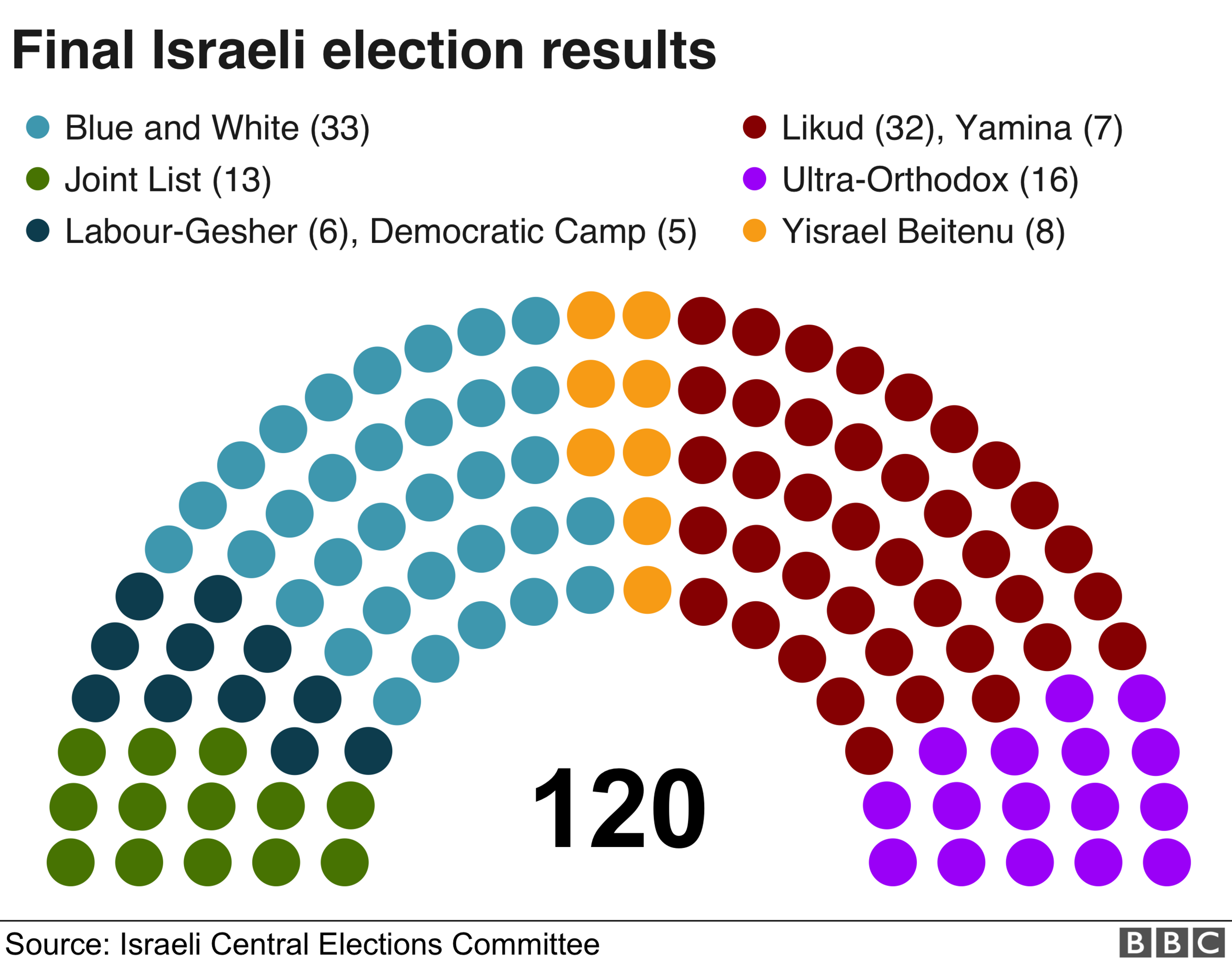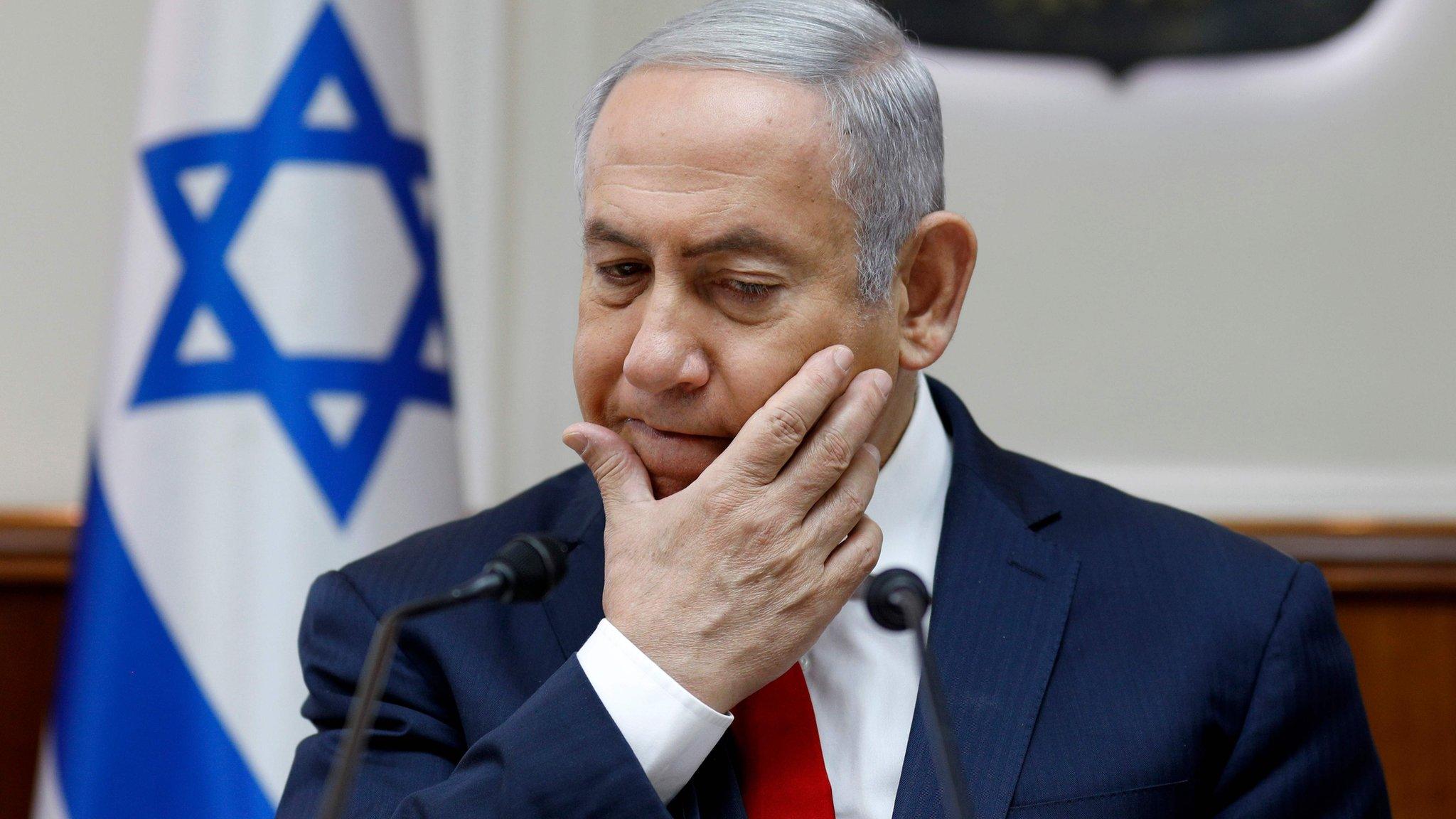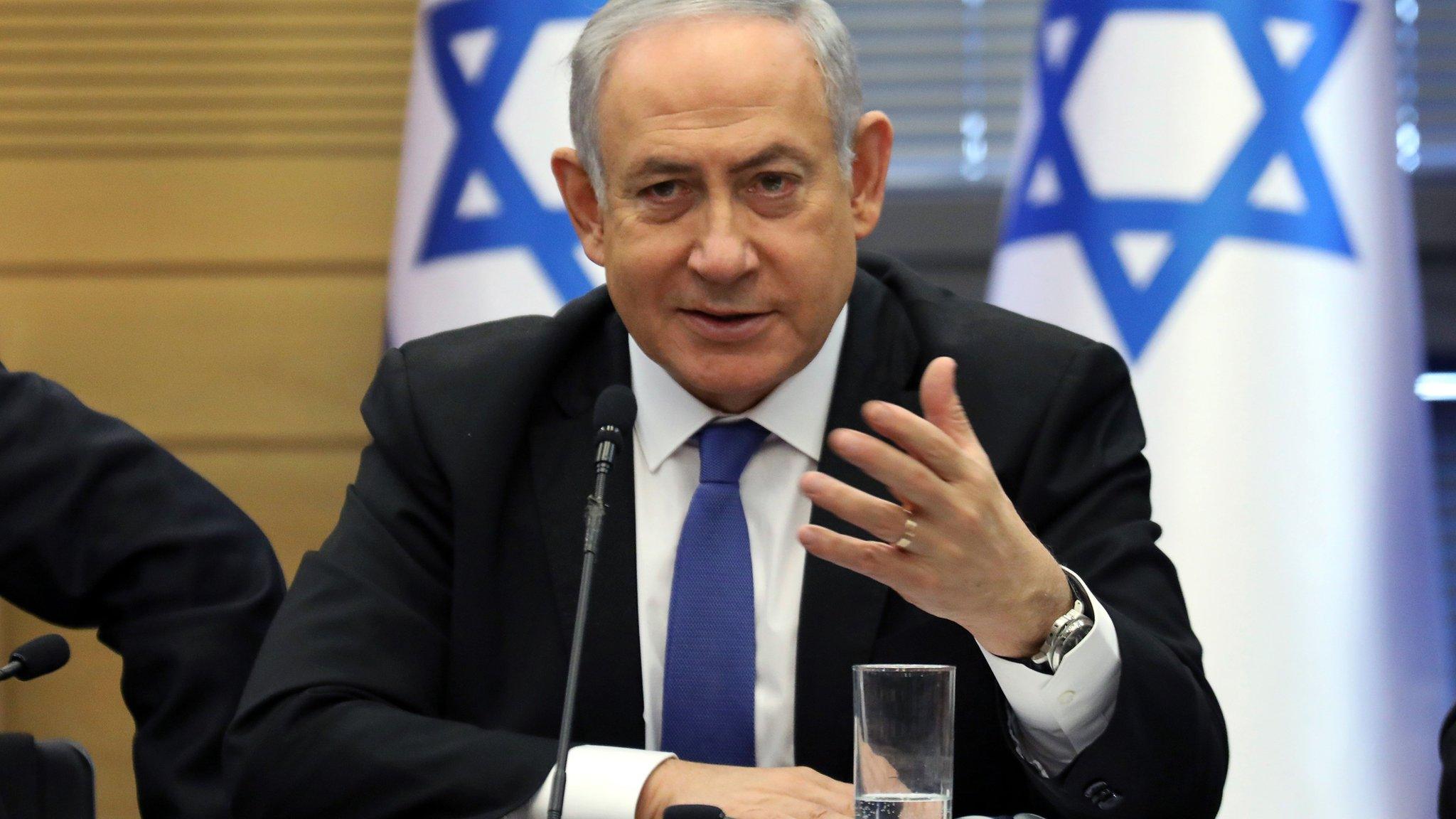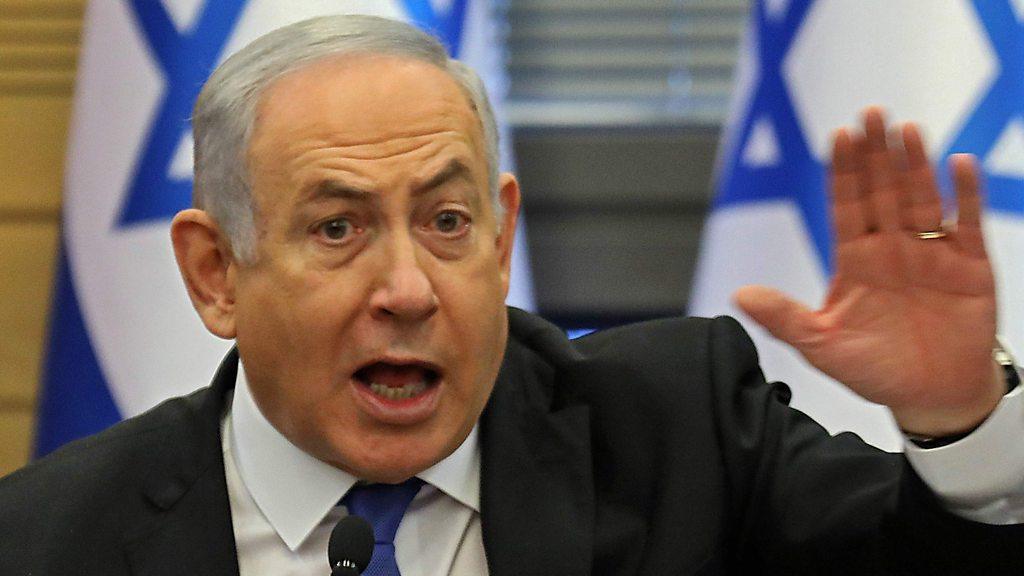Benjamin Netanyahu asks for immunity from prosecution
- Published
Middle East correspondent Tom Bateman explains the allegations against Benjamin Netanyahu
The Israeli Prime Minister, Benjamin Netanyahu, has decided to seek parliamentary immunity from prosecution over corruption charges.
The move would likely delay a trial until after fresh elections next March.
In November, the prime minister was charged by the attorney general with bribery, fraud and breach of trust in three separate cases.
Mr Netanyahu, who denies wrongdoing, would need the support of more than half of MPs for immunity to be granted.
Why did he ask for immunity?
Mr Netanyahu - who is the country's longest serving leader - is alleged to have accepted gifts from wealthy businessmen and dispensed favours to try to get more positive press coverage.
He made the request for immunity in a televised speech just four hours before the deadline for an application was to expire.
He said it "would be in line with the law... with the goal of continuing to serve you, for the future of Israel".
In March, he faces a third national election within a year.
A trial cannot begin once an immunity request is made and the Israeli parliament, the Knesset - which has been dissolved ahead of fresh elections - is unlikely to rule on the request before then.
Under Israeli law, members of the Knesset do not receive automatic immunity from prosecution, external, but can request it when relevant.
A sitting prime minister in Israel is only required to step down once convicted.
Previous elections held in April and September 2019 saw Mr Netanyahu's right-wing Likud party deadlocked with the centrist Blue and White - with neither able to form a government.
Mr Netanyahu's legal problems were a big obstacle to negotiations. He has always insisted the charges are a politically motivated "witch-hunt" against him.

What has the reaction been?
Political leaders in Israel have reacted angrily to the decision.
Netanyahu's rival for the premiership, Benny Gantz, vowed that his Blue and White party would do everything it could to prevent immunity.
"I never imagined that we would see the day that the prime minister of Israel would avoid standing before the law and the justice system," he said.
Avigdor Lieberman, leader of the right-wing Yisrael Beiteinu, announced on Wednesday that his party would vote against the immunity request.
The Knesset Speaker, Yuli Edelstein, who is a member of Netanyahu's Likud party, said he would hold talks on the matter next week.
- Published22 May 2020

- Published21 November 2019

- Published21 November 2019
